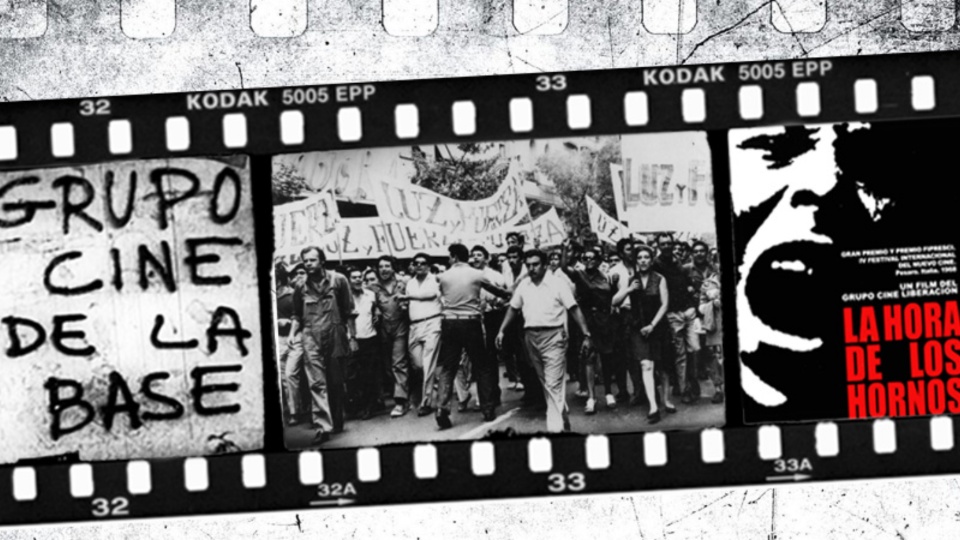
In their 1969 manifesto, Toward a Third Cinema, Argentinian filmmakers Fernando Solanas and Octavio Getino defined Third Cinema as “a cinema of liberation” that stood in opposition to the values of the first and second cinemas.
They described First cinema as “the dominant commercial cinema,” in the service of U.S. capitalism and imperialism; Second cinema was “the avant-garde and experimental cinema which has been born as an alternative to the dominant one.”
Instead, Third Cinema filmmakers sought to create a cinema that was rooted in local cultures and traditions and that reflected the realities of life for ordinary people. Often, this involved using non-professional actors and improvisation, as well as incorporating elements of documentary and other forms of non-fiction filmmaking.
In Argentina, the right-wing Onganía military dictatorship had taken power in June 1966, and the forces of the left had been heavily persecuted, with widespread censorship of media and cultural manifestations such as cinema.
It is in this political context that in June 1968 Solanas and Getino had first shown The Hour of the Furnaces (La Hora de los Hornos), one of the seminal works of the “Cine Liberación” (Liberation Cinema) wave of revolutionary films from Latin America.
In this four-and-a-half-hour film, the directors had traveled across Argentina, and as a 1970 review of the film in Cinéaste magazine points out, “made contact with, discussed with, and eventually filmed most of those who are actively involved (clandestinely as well as openly, outside as well as within the ‘legal’ institutions of Argentina) in the struggle for a revolutionary transformation of Argentine society.”
The documentary’s title was rooted in the region’s colonial and revolutionary past and present.

When the first European “explorers” sailed along the southeastern coast of South America during the early part of the 16th century, they reported seeing hundreds of cooking fires along the coast of Tierra del Fuego.
The expression “la hora de los hornos” (the hour of the cooking fires) was then regularly used by Latin American poets and historians, and by the time of the film’s release had become an anti-imperialist rallying cry taken up by the Argentinian revolutionary Ernesto “Che” Guevara.
In calling for a socialist revolution to sweep Latin America, he quoted the 20th century Cuban revolutionary leader José Martí and proclaimed: “Now is ‘la hora de los hornos’; let them see nothing but the light of the flames.”
As with “el Che,” Third Cinema also has a symbiotic link to Cuba and its revolution. Just two months after the January 1959 revolution, the Cuban Film Institute (ICAIC) was created, and it went on to play a crucial role in the development of Third Cinema.
The ICAIC provided a model for collective production and distribution, as well as a source of funding and support for filmmakers who might otherwise have struggled to get their work made.
The Cuban experience also demonstrated the power of cinema as a tool for social change and provided a template for other Third Cinema movements around the world.
We now live in an age of internet, social and digital media, where much lower technological barriers to entry have meant that producing video content in the spirit of Third Cinema has, arguably, never been easier.
However, making this a sustainable living for filmmakers remains extremely challenging, especially since the guardians at the doors of television and powerful digital outlets seem less willing than ever to allow documentary films and video content that critically explore Western power and its crimes.
I was struck that at the 2022 Sheffield Documentary Festival, one of the most prestigious English-language documentary festivals in the world, the list of sponsors included the U.S. Embassy in Britain.
Given that Ithaka, a moving documentary about the horrifying abuses inflicted on Julian Assange and his family by the British and U.S. government was having its British premiere, this U.S. government festival support felt particularly distasteful.
For me, though, it demonstrated how much importance governments such as the U.S. place on culture-washing their standing among audiences that could be described as progressive.
Despite these unfavorable institutional contexts and the nefarious influence of reactionary powers, the ability for likeminded filmmakers guided by the ethos of Third Cinema to find audiences for their films remains.
One key aspect of Third Cinema was its emphasis on collective production and distribution, not just state-supported, as in the case of Cuba.
Unlike the Hollywood model, which was driven by individualistic competition and profit, Third Cinema filmmakers often shared resources and worked collaboratively in order to create and distribute their films.
This allowed traditional commercial channels to be bypassed, and audiences were reached directly, often through screenings in community centers, schools, and other non-theatrical venues.
This DIY approach to production and distribution is very much what I have employed since releasing my first documentary in 2009 on Hugo Chavez and the Venezuelan revolution.
While not an easy approach, it certainly provides an enriching experience in engaging audiences across the world with films challenging mainstream narratives.
In 1999, in a speech in Venezuela, Fidel Castro spoke about the importance of waging the “battle of ideas.”
While more than 50 years have passed since Solanas and Getino first proclaimed their Third Cinema manifesto, this battle of ideas is still being fought, and the manifesto’s spirit remains alive today.
We hope you appreciated this article. Before you go, please support great working-class and pro-people journalism by donating to People’s World.
We are not neutral. Our mission is to be a voice for truth, democracy, the environment, and socialism. We believe in people before profits. So, we take sides. Yours!
We are part of the pro-democracy media contesting the vast right-wing media propaganda ecosystem brainwashing tens of millions and putting democracy at risk.
Our journalism is free of corporate influence and paywalls because we are totally reader supported. At People’s World, we believe news and information should be free and accessible to all.
But we need your help. It takes money—a lot of it—to produce and cover unique stories you see in our pages. Only you, our readers and supporters, make this possible. If you enjoy reading People’s World and the stories we bring you, support our work by donating or becoming a monthly sustainer today.












Comments